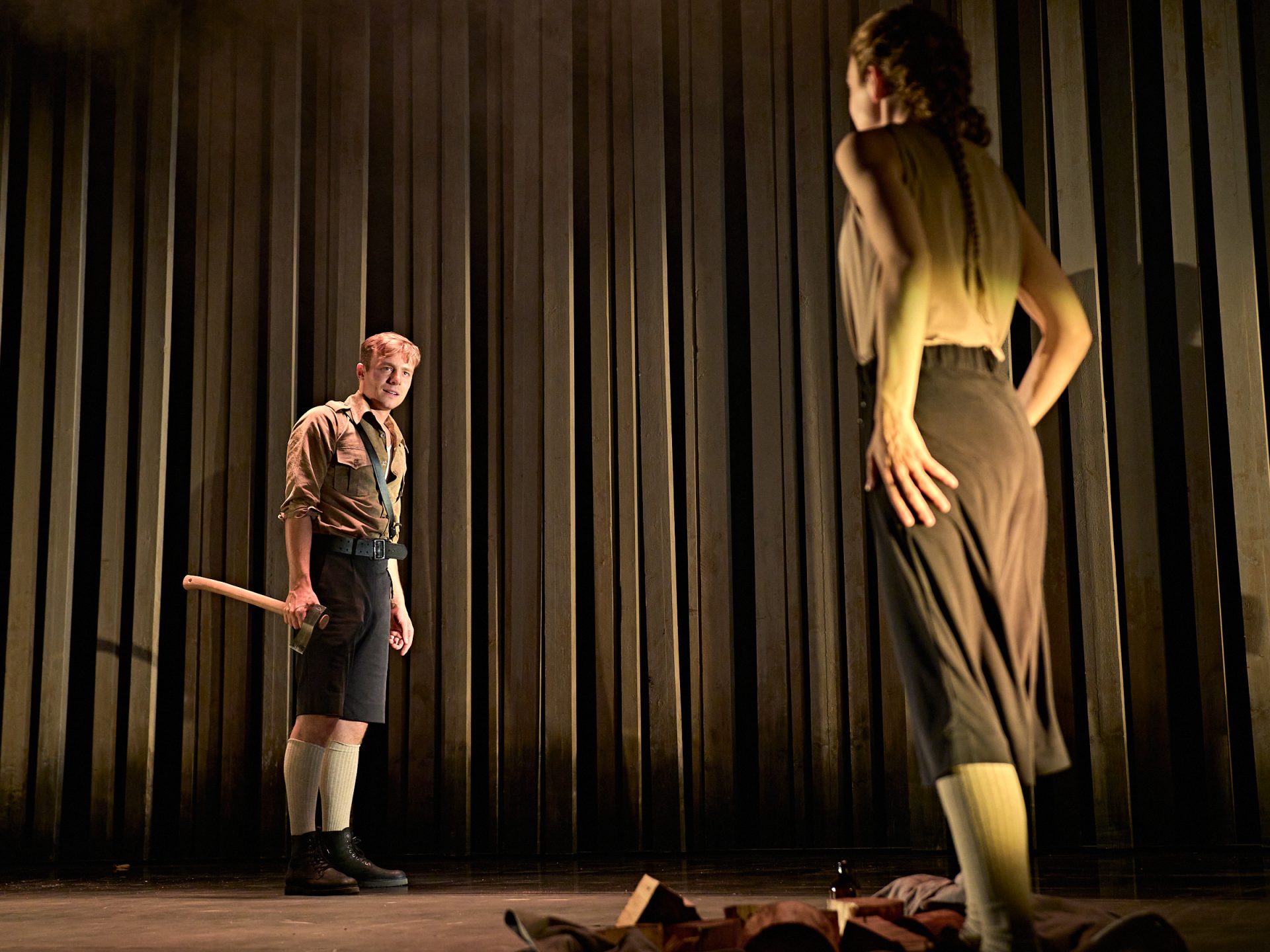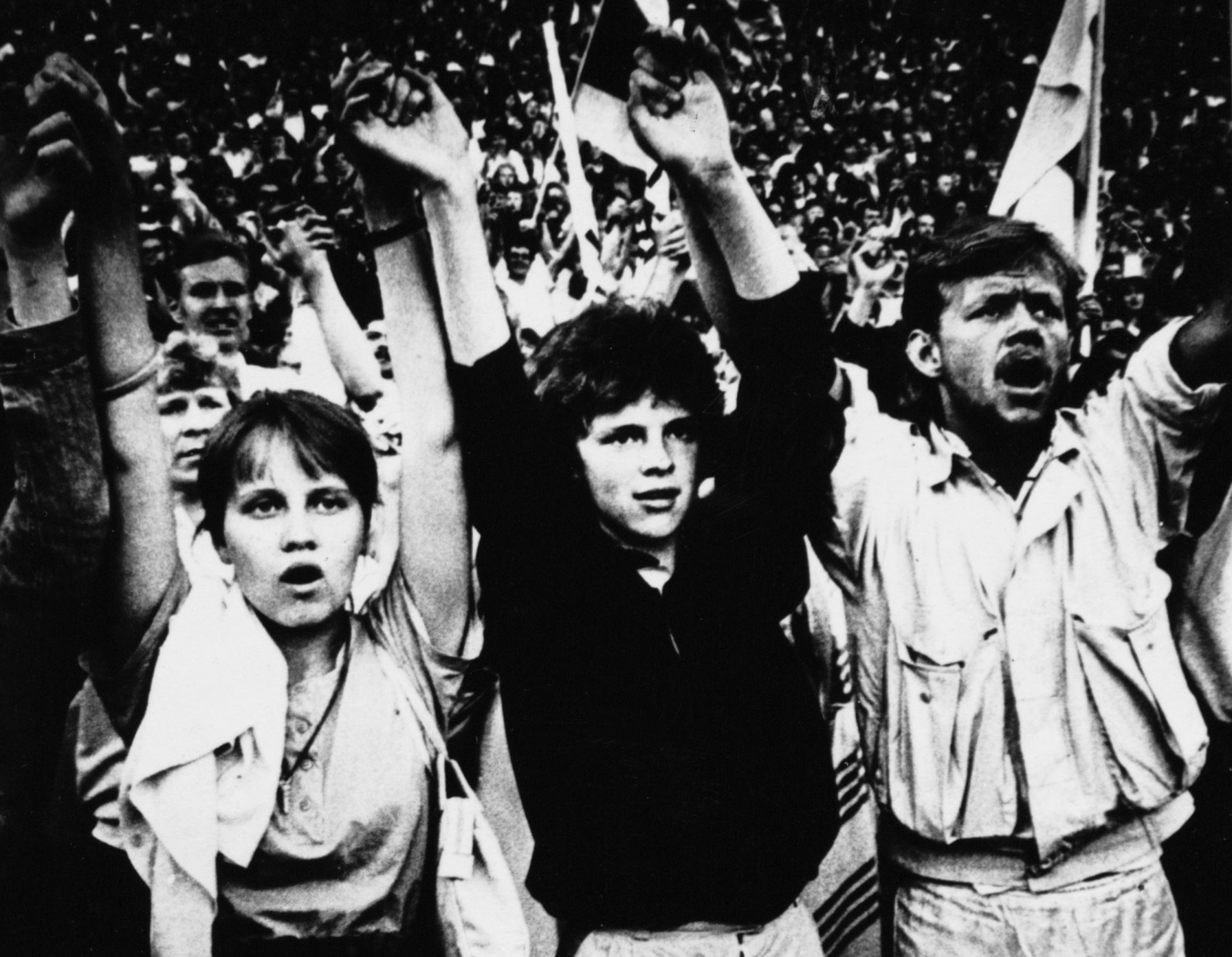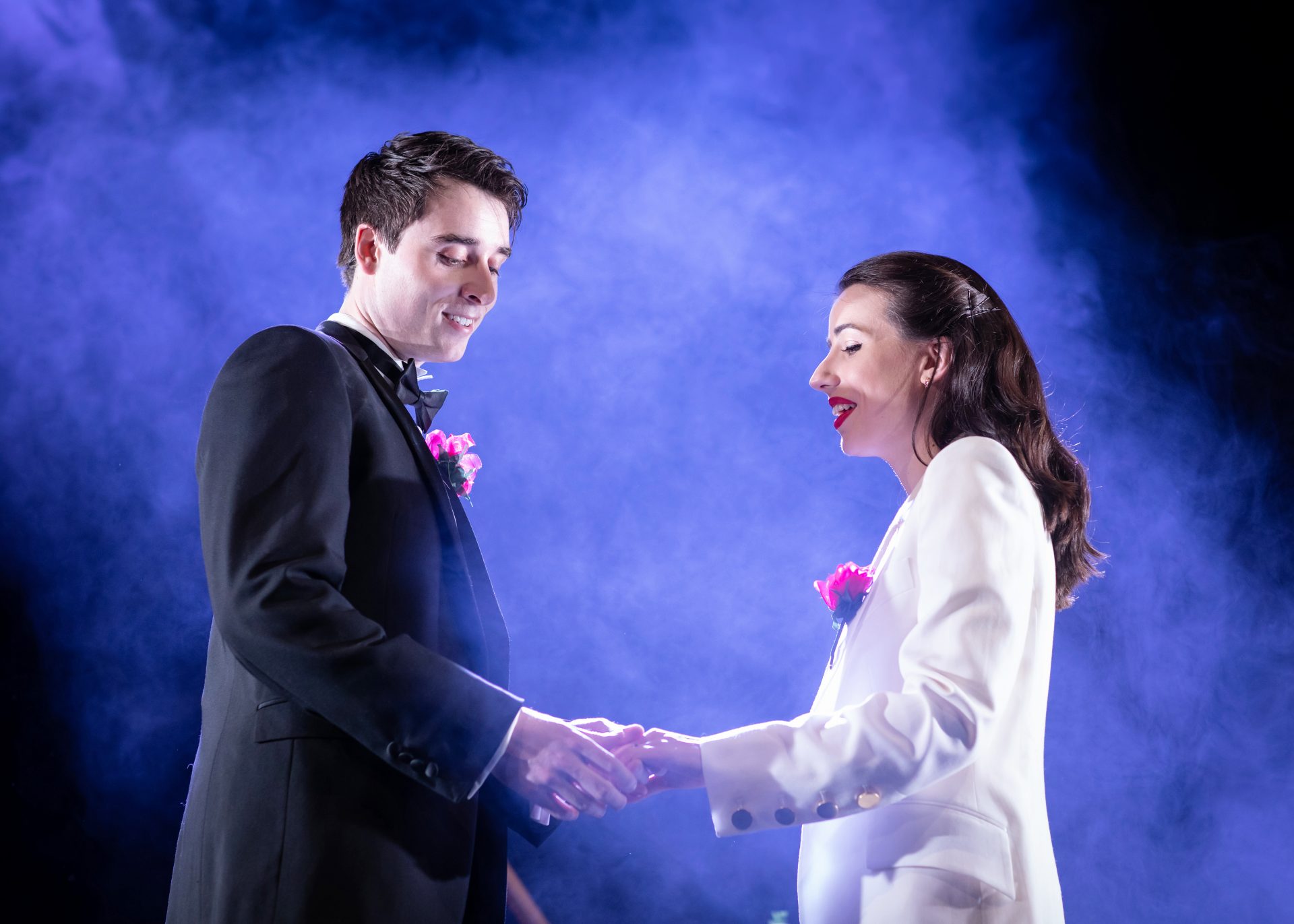Camp Siegfried
Old Vic, London, till Oct 30
American writer Bess Wohl clearly likes a challenge, but trying to make us care about a couple of German-American teenagers who fall in love in a Nazi summer camp in New York state a few years before the war was always going to take some doing.
Unbelievably, virtually up until America became involved in the Second World War, the Nazis were allowed to indoctrinate tens of thousands of youngsters in these camps, set up in locations across the land of the free.
Patsy Ferran plays an impressionable young girl who falls under the spell of Luke Thallon’s strapping, blond, Lederhosen-clad exemplar of the “master race.” They are two attractive, personable actors and they go through all the usual dramas in a relationship.
The woman – Wohl hasn’t troubled to give either character names – starts off by saying she reckons Look, It’s turned out nazi again Hitler is a “little bit crazy”, but, towards the end, she is making a full-on speech in praise of the Nazi ideology, with a face that’s full of hatred. Her lover admits he’s murdered someone – always a worrying sign – but then becomes more human towards the end.
There are only two characters in this play and the set is pretty bare, so there is little to do unfortunately but to contemplate this plodding production’s moral vacuity. “I am sure America can be great again,” Ferran gets to say in her big speech, which is of course supposed to make us think of Trumpian populism, but the idea is not sufficiently developed.
Ultimately, I suppose, the play asks us to sympathise with its two principals – to see the humanity in them – rather than to be repelled and I just wonder if that’s helpful.
I might add I heard an old girl sitting in the row in front complaining at the end that she’d never got to see Siegfried: I think a show about a camp German by that name would have been a lot more fun and almost certainly a lot less offensive.




